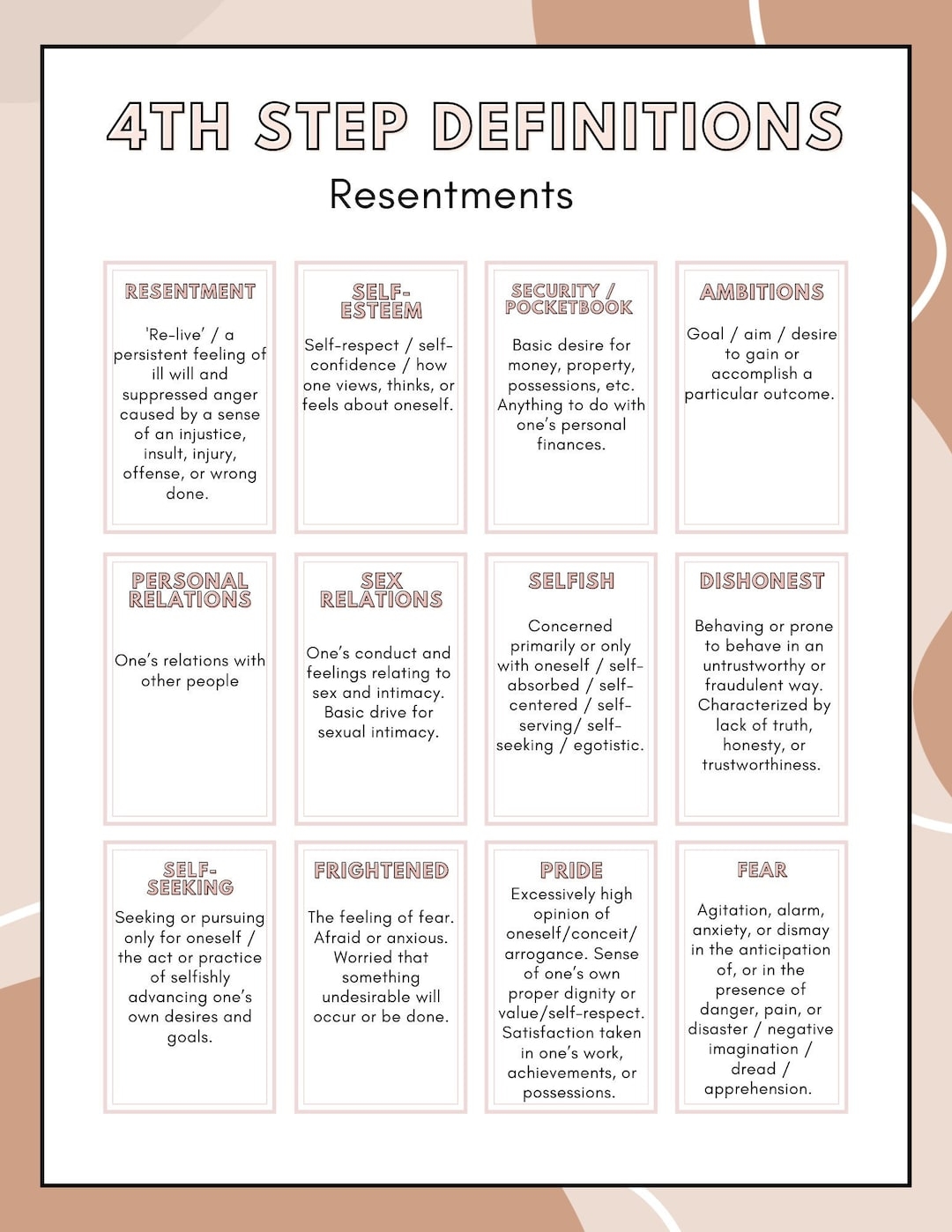Embarking on a journey of self-discovery and healing through the 12-step program of Alcoholics Anonymous can be a transformative experience for individuals struggling with addiction. One of the crucial steps in this process is the 4th step, which involves taking a fearless and moral inventory of oneself. This step allows individuals to reflect on their past actions, behaviors, and attitudes in order to gain a deeper understanding of themselves and their patterns of behavior.
Completing the 4th step can be a challenging but rewarding process, as it requires honest self-reflection and a willingness to confront difficult truths about oneself. Many individuals find it helpful to use a worksheet as a guide during this step, as it can provide structure and prompts to help organize their thoughts and reflections.
AA 4th Step Worksheet
One common format of the AA 4th step worksheet includes sections for individuals to list their resentments, fears, and harms done to others. By breaking down these categories, individuals are able to identify specific incidents or patterns of behavior that have contributed to their struggles with addiction. This worksheet can serve as a roadmap for individuals to explore the underlying causes and consequences of their actions, helping them to gain insight into their behavior and its impact on themselves and others.
As individuals work through the AA 4th step worksheet, they may uncover deep-seated emotions, beliefs, and traumas that have influenced their addictive behaviors. By acknowledging and processing these feelings, individuals can begin to heal and move forward in their recovery journey. The worksheet provides a space for individuals to document their progress, insights, and breakthroughs, serving as a tangible record of their growth and transformation.
Completing the 4th step worksheet can be a cathartic and empowering experience for individuals in recovery. By taking a thorough inventory of their past actions and attitudes, individuals are able to identify patterns, triggers, and areas for growth. This process of self-examination can lead to increased self-awareness, accountability, and a renewed sense of purpose in recovery.
In conclusion, the AA 4th step worksheet is a valuable tool for individuals in recovery to explore their past, confront their truths, and pave the way for healing and transformation. By engaging in this introspective process, individuals can gain a deeper understanding of themselves, their behaviors, and their journey towards sobriety. The 4th step worksheet serves as a guiding light on the path to recovery, helping individuals to navigate the complexities of their past and present in order to create a brighter future.
